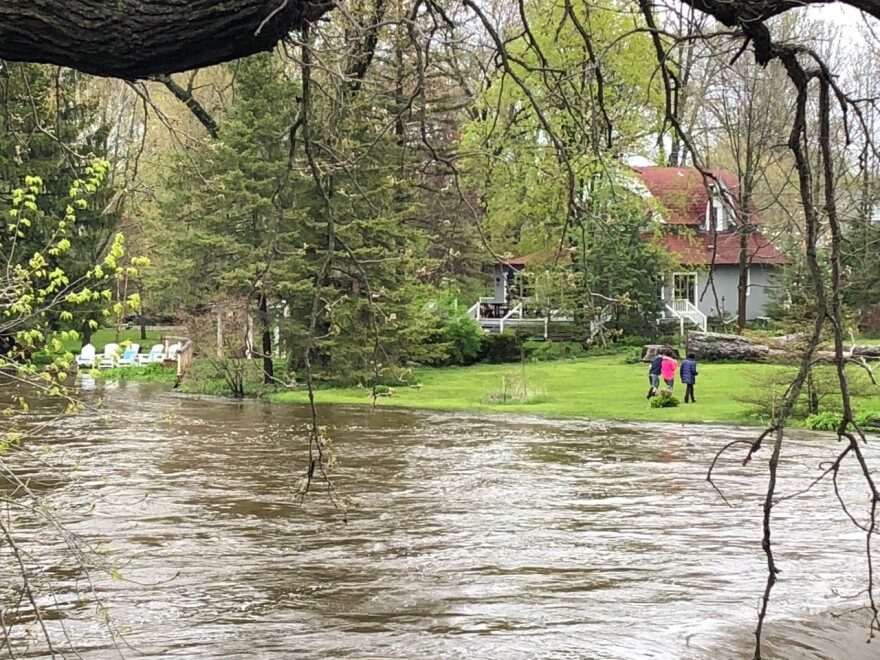The Milwaukee area just came through a bout of long, hard rain. When the deep tunnel capacity was maxed out on Sunday, the Milwaukee Metropolitan Sewerage District (MMSD) made the tough call to release combined sewer water to Milwaukee waterways which flow into Lake Michigan.
Right now, there’s heightened concern beyond the vast amounts of tainted water going where we don’t want it to go because people are worried about the coronavirus. UWM School of Freshwater Sciences’ researcher Sandra McLellan will soon begin testing wastewater for evidence of the coronavirus.
READ: Milwaukee Researcher Looks For Signs Of COVID-19 In Human Waste
I asked Kevin Shafer, executive director of the sewerage district, what’s known and unknown about the potential danger of COVID-19 in wastewater? He says that's a better question for scientist McLellan.
“The first day, she called and asked if she could start taking samples and freezing them for this testing that she’s doing. We’ve been doing that, so all we can do is try to provide the best data for the scientists to look at,” Shafer says. “Based on what the science is telling us today — and it could change later — says that the virus while it may be in wastewater, they don’t think it’s infectious.”
As McLellan and other scientists learn more about how the coronavirus behaves in wastewater, Shafer says MMSD’s treatment protocol might change.

"In the long-term, once we get some good information and some good science, we could look at a different means of disinfection if that proves to be more of [an] effective killer of these viruses,” Shafer says.
Shafer says if the pandemic doesn't teach the world that science is critical to our future, our future is in big trouble.
“They’re really smart people. They’re the ones that are day-to-day elbow deep in the research on this, trying to solve these issues for the entire world. We look to them for answers and then they look to us for implementation,” he says.
Shafer puts wastewater overflows right up there with threats to human health and well-being. The question is: How can they be prevented?
READ: When It Comes To Flooding, Can Milwaukee Cope?
He says we cannot expect Milwaukee’s deep tunnel to capture water from every heavy rainfall. The storms are hitting more frequently with greater force.
“We have a total of 521 million gallons of storage that we can hold, and we also service an area of 411 square miles. ... So if you take 5 inches of rain, like what we had Sunday and yesterday, that’s 35 billion gallons. It's trying to find someplace to go. It's going into the tunnel or the rivers or wherever,” Shafer says.
That sometimes includes people’s basements, where sewage back-ups can cause thousands of dollars in damage.

Shafer says MMSD has come up with some ideas it has folded into a resilience plan. He says it's meant to be a regional model.
“I think the biggest message is that we can address those pollutants that have the most risk to human health and safety, and then eventually work down that list of pollutants. But you have to look at both runoff from agricultural areas, runoff from urban areas, overflows from sewer systems,” Shafer says.
Looking, he says, the way nature does — watershed by watershed.
Have an environmental question you'd like WUWM's Susan Bence to investigate? Submit below.
_




